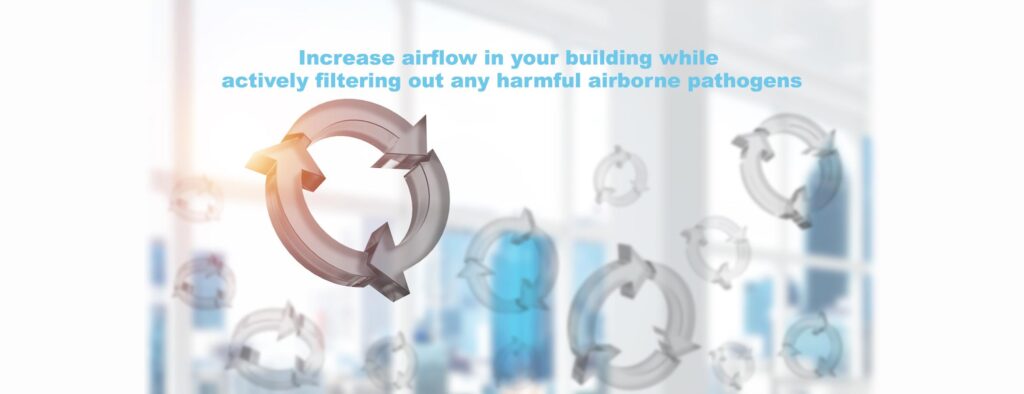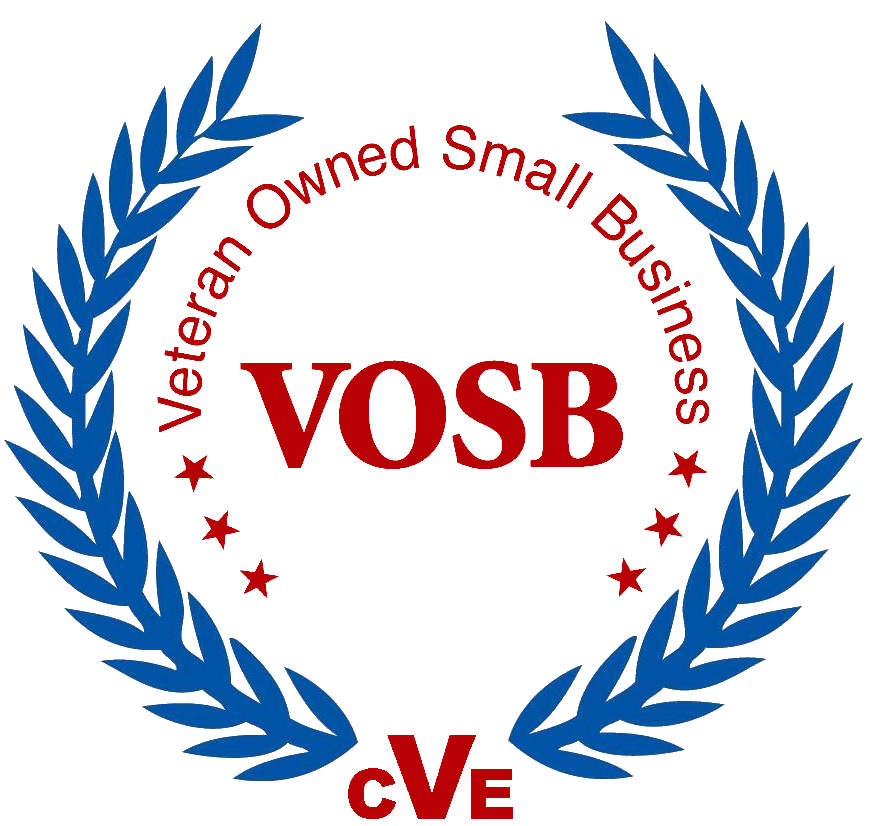
A system that increases airflow could help reduce the risk of coronavirus transmission indoors.
The COVID-19 pandemic has undoubtedly changed our daily way of lives. Unfortunately, the current status of the outbreak is that infection rates are on the rise, and death rates are continuing to climb. As the months drag on and there seems to be no end in sight, people are beginning to search for more information on how to do their part to effectively combat the spread of the novel coronavirus.
For commercial building owners, this task is greater in scale and more important because of how many people can be affected inside your space. Implementing tactics such as social distancing measures, extra hand sanitizing stations, protective plexiglass guards, regular cleaning and sanitization procedures are all important steps that can be taken to drastically reduce the spread of the coronavirus and other diseases. One of the most important yet overlooked factors in fighting COVID-19 is the role your building’s airflow plays.
Poor Ventilation Equals Increased Transmission
Experts have stated that we are at a higher risk of becoming infected with the coronavirus while we are in indoor spaces. The more crowded the indoor space, the higher the likelihood of transmission. Poor ventilation in confined spaces is the main factor for the transmission of respiratory infections such as COVID-19.
A system that can effectively increase the airflow in your building while actively filtering out any potentially harmful airborne pathogens is essential to the health of your building’s occupants. The World Health Organization (WHO) states that a well-maintained and operated air conditioning system can reduce the spread of COVID-19 in indoor spaces by removing large particulate matter and many microorganisms from the airstream.
COVID-19 is primarily transmitted through large respiratory droplets, but an increasing number of outbreak reports indicate the role of aerosols in COVID-19 outbreaks. Aerosols consist of small droplets that remain in the air for longer than large droplets. Studies indicate that SARS-CoV-2 particles can remain infectious on various materials, as well as in aerosols in indoor environments. The duration it remains depends on temperature and humidity.
Steps to Reduce Transmission
The CDC recommends that to prevent airborne infections, rooms should have between 6 and 12 full cycles of new air per hour. Hospitals operate on a similar schedule since they require year-round functionality. The WHO website states that “a well-maintained and operating system can reduce the spread of COVID-19 in indoor spaces by increasing the rate of air change, reducing recirculation of air, and increasing the use of outdoor air.” They also make it clear that systems and settings that recirculate air without filtration should be avoided at all costs.
There are several simple steps that can be taken to reduce potential airborne transmission of COVID-19 in your commercial building. The layout and design of your building, as well as occupancy and type of heating, ventilation, and air conditioning system, can all impact the potential airborne spread of the virus. The HVAC systems in large buildings typically filter air before it is distributed throughout the building. Consider upgrading your air filters as appropriate for your specific building and HVAC system.
The complexity of HVAC systems in large buildings often requires a professional interpretation of technical guidelines, such as those provided by ASHRAE, EPA, and CDC. These bodies recommend upgrading commercial air filters to the highest quality compatible with your system and checking the fit of the filter in order to minimize filter air bypass. If you are unsure which is right for your building, consider consulting with an HVAC professional.
Regular maintenance of your HVAC system is the first and most important factor. Other steps to improve ventilation in indoor public spaces and buildings includes opening windows and disabling ventilation controls that reduce air supply based on temperature or occupancy. Beyond the COVID-19 pandemic, it is helpful to have HVAC systems regularly inspected, maintained, and cleaned, but nothing substitutes the quality of natural ventilation.
Air Filters for Airborne Viruses
Updated research shows that COVID-19 can remain active for up to a few days under ideal conditions once captured by an air filter. Once trapped, the virus becomes bound to the fibers in the filter media and will eventually dry out and die. A proper filter will guarantee this process occurs and prevent the captured virus from being released back into the airstream. But what type of filter is best for this?
When shopping for your filter upgrade, you want to look for one an ePM1 filter or better. These are the most effective at removing infected droplets larger than 1 micrometer from the airstream. Do not be tempted by ePM2.5 filter or ePM10 filters as they are not built effectively to filter out the smallest particles in the air. Also, don’t feel the need to invest in a dual-stage filter as studies haven’t found them to be any more effective than single-stage filters.
Air Cleaners and HVAC filters for Personal Spaces
A central HVAC filter is designed to filter out air throughout the entire home. You can help your central air system by utilizing a portable air filter or sanitizer is highly problematic areas or rooms. These portable devices are designed to filter out the air in a concentrated space such as an office or bedroom. They are extremely efficient at removing large particulate matter from the air and if installed with a proper HEPA filter, can even help prevent the spread of COVID-19. Portable air cleaners can also help add extra ventilation without the presence of an outdoor airstream. Used in combination with other safety best practices, you can truly protect you and your loved ones during this difficult time.
AFC can plan a customized air filter maintenance system for your company’s unique requirements. Whatever your needs are, you can contact us and we will be happy to consult with you.

Advanced Filtration Concepts is a
Certified Veteran-Owned Small Business.
